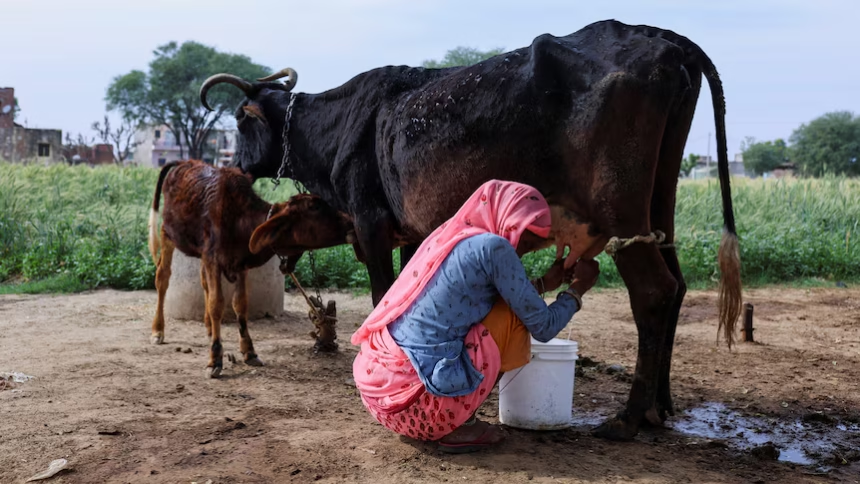MUMBAI – In southern India, Kalisetti Appalanaidu, an MP from Andhra Pradesh, has promised 50,000 rupees (about $911) to new parents who have a third child if the baby is a girl. For families with a third son, the offer is a cow.
This move highlights growing concern over population trends in the south of India. For over half a century, India encouraged smaller families. Now, some leaders in the south want people to have more children, a big change from previous policies.
This shift follows plans for a long-delayed national census and a process called delimitation, which will redraw the boundaries of parliamentary constituencies based on population size.
Delimitation is the process of adjusting the size of India’s parliamentary areas so each MP represents a similar number of people. This process was paused in 1976 to avoid family planning policies affecting each state’s influence in parliament. The government, led by Prime Minister Modi, plans to restart delimitation after the next census in 2027.
This has caused worry in southern states. Places like Tamil Nadu and Andhra Pradesh have managed to slow population growth through family planning. Northern states, meanwhile, have higher birth rates. When the boundaries are redrawn, northern states could gain more seats in parliament, while the south may lose influence.
To protect their political strength, leaders in the south are asking families to have more children. Andhra Pradesh’s Chief Minister Chandrababu Naidu and Tamil Nadu’s Chief Minister MK Stalin have both spoken about the need for population growth.
Mr Stalin has even asked people to start having children right away.
Some in the south want the current boundaries kept for another 25 years. Manu Sundaram, spokesperson for Tamil Nadu’s ruling party, the DMK, said, “We’ve asked for the freeze on delimitation to be extended so no state is penalised for following national family planning policies.”
“No state should lose for doing what the government asked over the last 50 years.”
Will these incentives change anything in India?
Cash payments to new parents are not a new idea. In 2004, Australia introduced a one-off “baby bonus” of up to $5,000 to encourage people to have more children. Birth rates rose slightly, but the scheme ended in 2014.
Politicians may be focused on parliamentary seats, but many families are worried about daily life. Malleshwari, a 28-year-old woman from Andhra Pradesh, has one child and feels that is enough. “With health and life being so uncertain, I would rather have one child and do my best for them,” she said.
“Fifty thousand rupees isn’t enough. Education, health care and a good life cost much more.”
She thinks the government should focus on better education and support, not just cash rewards. “The main focus needs to be on education. Free and quality schooling is important, not just academic but practical and job skills too,” she said.
Keshav, who is 32 and works for an NGO, said his childhood was tough because of poverty and violence. He doesn’t want to pass that on. “If I can’t give a good education, money, and health, I don’t think it’s right to have more kids,” he said.
More than just a money issue
Health workers and women’s advocates in Andhra Pradesh say quick cash offers miss the real challenges. Keerthi Bollineni, who works with women in the state, believes that real support for families comes from better services, not short-term rewards.
“Sustainable growth matters. Cash transfers are not the solution. What’s needed is better infrastructure, schools, and health care,” she said.
MP Appala Naidu has also promised more access to maternity leave. However, changes like these may not make a real difference before the next census.
Dr Geetha Devi, a gynecologist in Andhra Pradesh, has seen how little these incentives matter to many families. She says that better health care should come first. “The incentives might help some, but for educated, working women, 50,000 rupees and a cow will not change their minds,” she said.
“Most families I see now have only one child, even in Andhra Pradesh, Telangana and other southern states. If you want more children, the health system has to improve first.”
She pointed out that many public health centres do not have enough doctors, working equipment or proper repairs. Many are also short on staff. Improving these basics would make a bigger difference for families than cash handouts.














